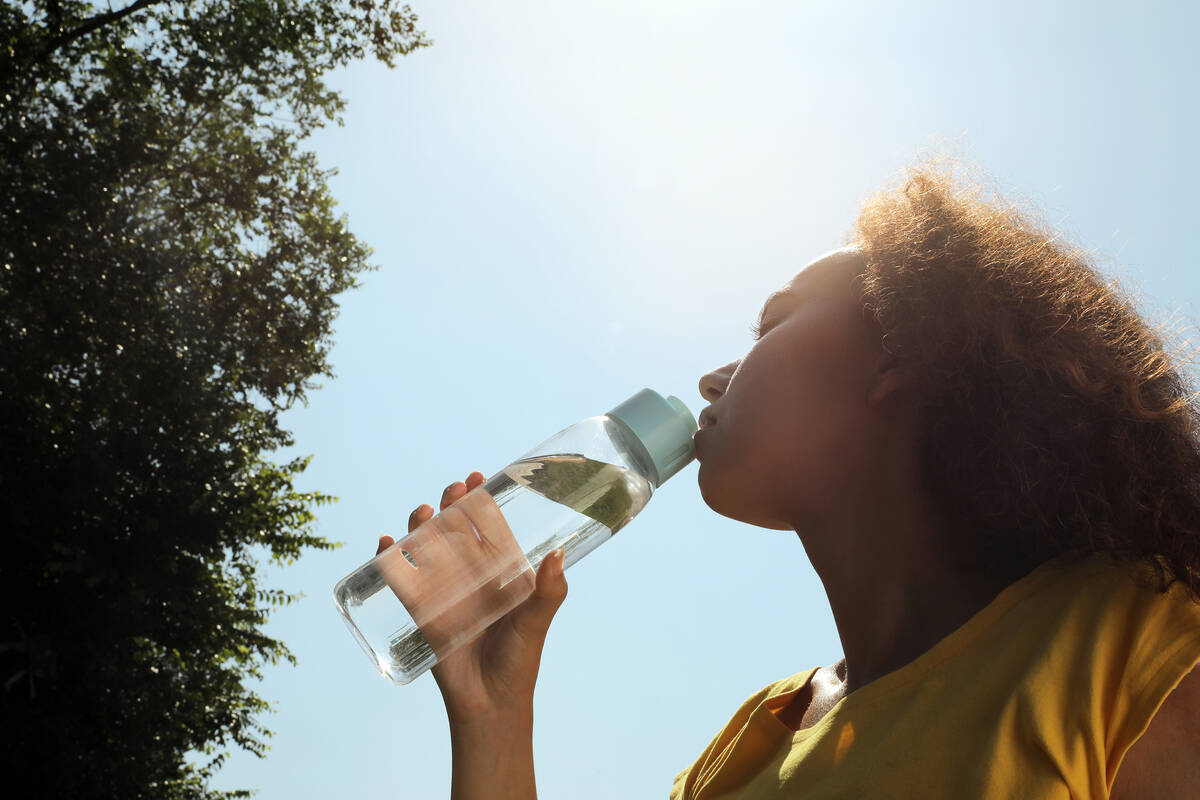How much water do we need to ward off dehydration, heat illness?
How do our bodies stay cool when we get overheated?
We sweat. It’s the evaporation of water from perspiration that helps cool us. When body fluids are used up to fuel sweat glands, we can become dehydrated in a hurry, according to a fascinating review on sweat (really) in a scientific journal appropriately called Temperature.
Heatstroke — a condition caused when the body gets overheated — is life-threatening. A severe lack of fluids can even cause major organs to shut down.
About 60 percent of our body weight is water. Besides sweat, water is the basis of all our body fluids, including saliva, blood, urine and the fluid that cushions our joints. That’s why we need a constant supply to keep everything working as it should. On average, women need around 9 cups of fluids a day, and men need 13 cups.
If that sounds like a lot, remember that “fluid” includes water, coffee, tea, milk, fruit and vegetable juices and other beverages except alcohol (sorry). It’s best to avoid beverages loaded with sugar as well.
One easy way to assess the adequacy of your fluids: Check your urine. If it is darker than light lemonade, increase your fluid intake. Other signs of dehydration include fatigue, dizziness and confusion.
When we sweat profusely, our bodies lose mostly water and salt (sodium and chloride) but also small amounts of potassium, calcium, iron and other nutrients. So how do we beat the heat?
According to the Centers for Disease Control and Prevention, the most important way to prevent heat illness is to drink enough fluids. And don’t wait until you’re thirsty to drink. Thirst alone is a faulty indicator of fluid levels.
Plain water is generally sufficient if you eat regular meals, the CDC says. Two slices of whole grain bread, for example, supplies similar amounts of sodium, potassium and other electrolytes as a 20-ounce sports drink. (People who exercise and sweat for long periods of time without meals may need fluids with carbohydrates and electrolytes.)
When working in the heat, we are advised to drink 1 cup (8 ounces) of water every 15 to 20 minutes. That translates to about 24 to 32 ounces per hour. And drink a little at a time, the CDC advises. It’s more effective than gulping large amounts at once.
Do not drink more than 48 ounces of water or other fluids (including sports drinks) per hour, the CDC warns. Excess water can be deadly if it dilutes the concentration of salt in the blood, which can cause brain cells to swell.
Barbara Intermill is a registered dietitian nutritionist and syndicated columnist. Email her at barbara@quinnessentialnutrition.com.


















